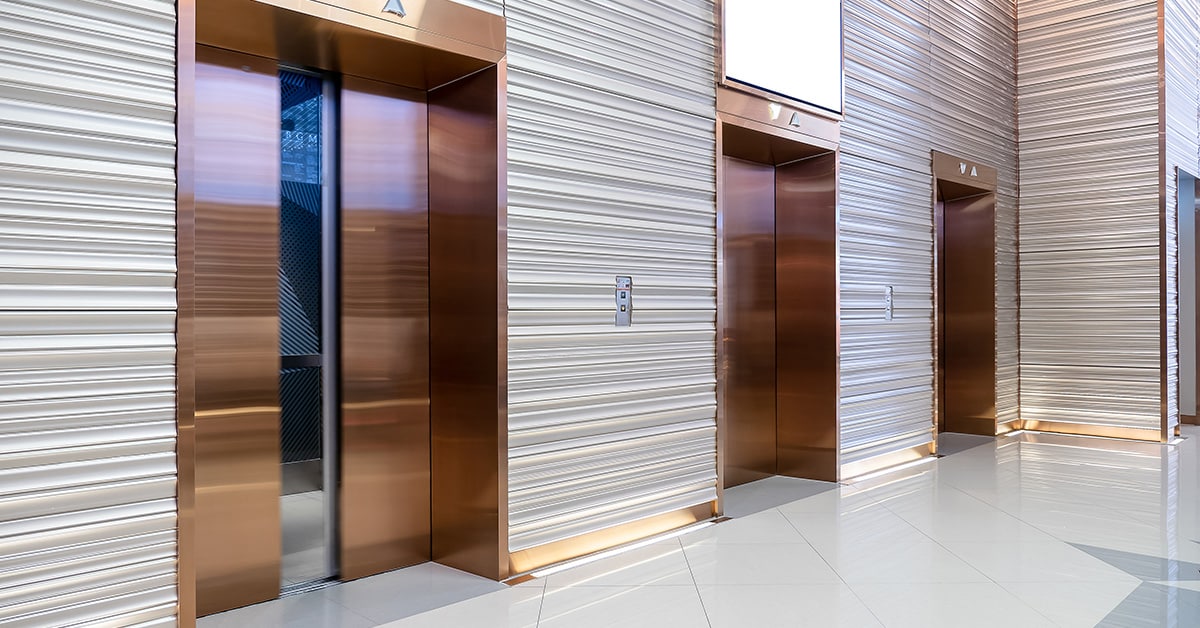Understanding ‘Proprietary’ in the Elevator Industry
Proprietary- held as property of a private owner: of or relating to, or a proprietor, used or made or marketed by one having exclusive legal rights. Traditionally, describing a product or application as “proprietary” conveyed to the purchaser that something quite special was being offered. Perhaps having a unique finish, blend, or technique is a good thing in a sometimes bland world. However, when it comes to technology, the term “proprietary” takes on more sinister connotations. You do not have to be a character in a James Bond film to have been slapped in the face with the cost and misery of owning something with “proprietary” features. Unless you are willing to suffer great cost, misery, and children’s tears, you can bend the knee or “pay up.”
The Impact on Elevator Owners
What does this have to do with you (who we hope owns or wants to own an elevator)?
While elevators still function on long-standing mechanical principles, they have become exceedingly complicated and technical in terms of their execution of various tasks. In large part, this is a good thing as elevators are generally decidedly safer, more reliable, and cheaper to maintain than those of previous generations. These are all benefits that inure to the benefit of the owner of the elevator system.
The Rise of Proprietary Tools in the Elevator Industry
Unfortunately, there has been a rise in the development of various proprietary tools and applications in the elevator industry that do not work to the benefit of the Owner. That modification might be a “time out” feature where a specific tool needs to be used to keep the elevator in operation. This tool’s sole purpose is to ensure that the manufacturer must maintain that elevator. There could also be a specific diagnostic program that is utilized to detect any faults. However, that diagnostic program will never be offered for sale. Finally, there could be operating software that the manufacturer controls it.
The Dilemma of Original Equipment Manufacturers (OEMs)
In the above situations, the customer may be stuck with the original installer/manufacturer who might be known as the OEM(“Original Equipment Manufacturer). The OEM may be charging a King’s Ransom, and their customer may be desperate for another elevator contractor. However, that customer is stuck with that contractor, and both parties know it.
The Manufacturer’s Control and Its Implications
In such circumstances, the manufacturer, assuming it remains the “sole source” of support can decide how long that system is viable and whether additional, sometimes costly, modules are necessary to stay in operation. As the “sole source,” the manufacturer might very well render its own system obsolete.
The Hidden Costs of Proprietary Equipment
In sum, proprietary elevator equipment means the Customer has limited options in terms of the servicing or replacement of their equipment. A great deal of effort may have been invested to ensure the Seller controls that equipment’s support and service going forward. Given that investment, Proprietary Equipment is often offered at a discount. However, the manufacturer’s investment must be recouped somehow, and it will be reflected in the price charged for parts and maintenance. The short-term benefit may be one that the customer finds agreeable. However, it is unfortunate when they were never aware of the long-term costs.
Challenges in Retrofitting Proprietary Systems
Moreover, the configuration of certain proprietary systems can create substantial difficulties in retrofitting your system. Functionally, this means that the customer might need an essentially new elevator installation as opposed to a simple modernization. Suffice it to say that the cost and loss of use for an existing building cannot be borne.
Questions to Ask Your Elevator Service Provider
Please ask questions of your elevator service provider, such as:
(a) How available are controller parts? Can any service provider purchase these parts from the controller manufacturer?
(b) Is there a proprietary fault log that must be reset at certain time intervals?
(c) Is a troubleshooting tool necessary for everyday troubleshooting, and is this tool available for purchase by whatever contractor you choose?
The key for the customer is to then annex these answers into the contract for either installation or modernization or that “Installer warrants all equipment as non-proprietary and shall provide any and all proprietary tools or software to the customer or any designee for the reasonable life of the equipment.”
The Advantages of Non-Proprietary Equipment
Non-proprietary equipment can be worked on by any Contractor with the proper elevator training. Parts are readily available, usually with multiple sources. This also finds its way into the pricing as there is (a) competition, and (b) no investment to be recouped in terms of maintaining control over the customer. Perhaps more importantly, as the customer, you have a say in who services your elevator. So, there is competition in terms of who produces your parts and who shall provide those parts. Please contact us if you would like more information. Until next time, stay put and stay safe.

